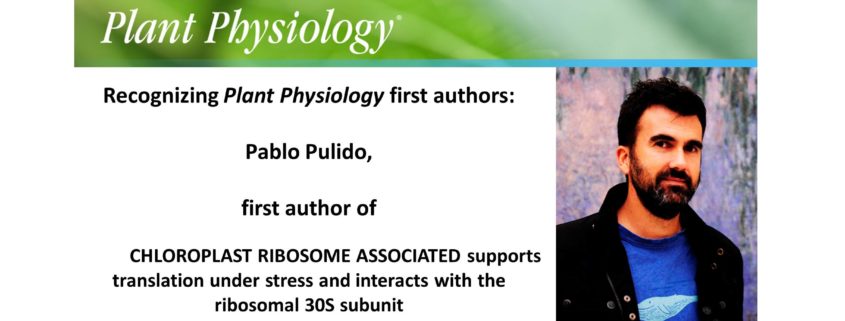Recognizing Plant Physiology first authors: Pablo Pulido
Pablo Pulido, first author of CHLOROPLAST RIBOSOME ASSOCIATED supports translation under stress and interacts with the ribosomal 30S subunit
Current Position: Postdoctoral researcher, Ludwig Maximilian University (LMU) of Munich, Germany.
Education: PhD in Redox Biology, Department of Vegetal Biochemistry and Molecular Biology, University of Seville.
Non-scientific Interests: Photography, travelling, diving, reading.
Brief bio: Since early stages of my scientific career I was interested in the study of the strategies of plants to cope with stress situations. During my PhD at the group of Prof. Dr. F. Javier Cejudo at IBVF (Seville), I investigated the molecular mechanisms driving specificity to the different antioxidant systems formed by thioredoxins and peroxiredoxins in the nucleus and the chloroplast of the plant cell. During my first postdoc at Prof. Dr. Manuel Rodriguez-Concepcion’s group at CRAG (Barcelona), I studied the posttranslational regulation of the plastid isoprenoid biosynthesis in plants. My research led to the discovery of a new mechanism of regulation of the pathway by a DNAJ/HSP70 chaperone system and Clp protease. During my second postdoc at Prof. Dr. Dario Leister’s group at CPSC (Copenhagen) and LMU (Munich), I have continued with the study of the chloroplast protein quality control, unveiling the role of a DNAJ-related protein in the assembly of the photosynthetic complexes. Besides, I have expanded my knowledge in chloroplast biology studying a new chloroplast ribosome associated factor required for plant fitness under certain stressful conditions such as cold treatments.




